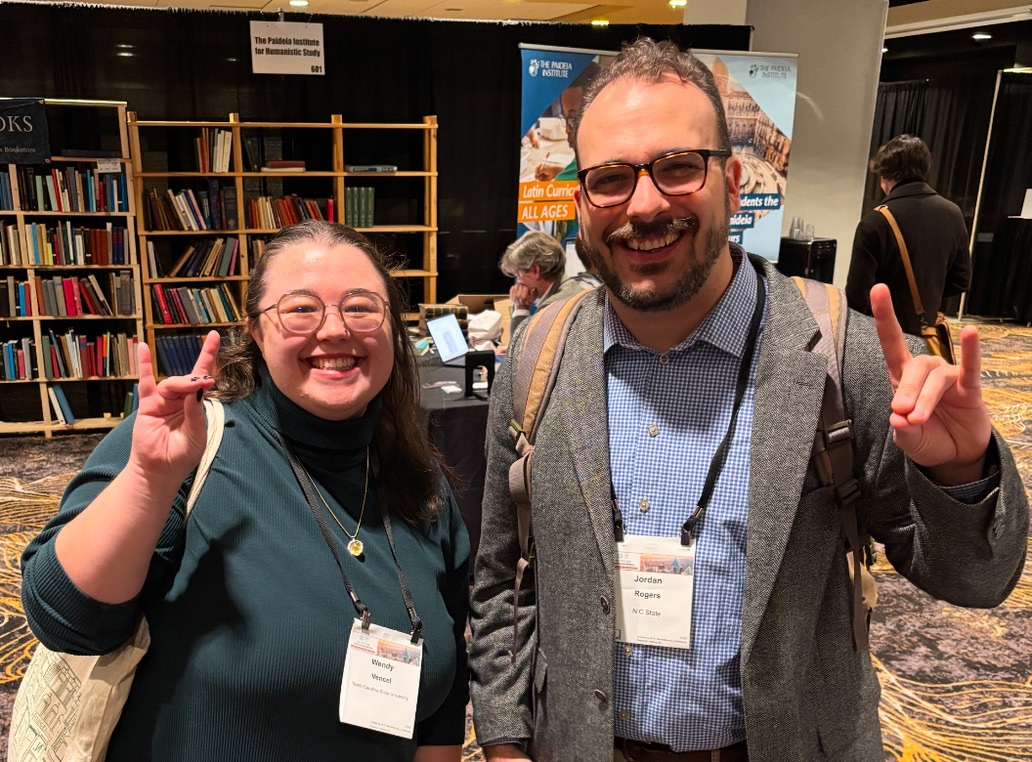Exploring the Impact of the Hog Industry in North Carolina through Oral History (Part I of III)
Note from Dr. Gwynn Thayer, Associate Head and Chief Curator of Special Collections, and the Spring 2023 HI 533: Theory and Practice of Oral History course instructor: This blog was authored by Nay Achkar and Jordan Jenkins, two graduate students in public history, and expresses their personal experiences and perspectives in this graduate history course. The oral history interviews that they reference will be processed and added to MC 740, Graduate Student Oral Histories on North Carolina Hog Farming, within the next several months. Eleven interviews were conducted in total, and captured diverse voices from the community, including the perspectives of hog farmers as well as activists and community members.
Throughout HI 533: Theory and Practice of Oral History, we (the graduate students in this course) have been analyzing the rise of industrial hog farming in North Carolina and how hog farms affect their surrounding communities in Eastern NC. Through nuisance, pollution, and the devaluing of property primarily held by people of color, the hog industry in ENC is responsible for a great deal of environmental injustice and racism.
Living around those farms has direct and indirect effects on people’s daily lives. The horrid smell, the gas produced by confined animals, the ammonia, the presence of large cesspools of waste, and the pollution of the local waterways are all part of the difficult and unpleasant life that the farm’s neighbors endure. Neighbors and activists within the community have dedicated a lot of their time and energy to the fight for environmental justice in ENC and have taken many different approaches including a lawsuit against Smithfield Foods in 2013 involving 26 communities and 535 individuals who were primarily people of color. In order to better understand and interpret the history of hog farming in ENC, we went to Duplin, Harnett, and Craven Counties in Spring 2023.
Nay Achkar and Rick Dove of the Waterkeeper Alliance, New Bern, NC

I met Rick Dove a couple of times. The first time it was in Duplin County, when I had the opportunity to take a flight and aerial tour with him, and the second time in his home in New Bern, where I interviewed him for an hour. Rick Dove was in the Marines for 25 years, and then became a Waterkeeper Alliance program manager in 1999, and found a job protecting the Neuse River. He took pictures from the air of everything he talked about that is not possible to look at from the air, and posted them on the website riverlaw.us.
During the aerial tour, he was our guide and explained to me what I was seeing, what I was looking at: the lagoons, the many many poultry and hog farms, the polluted water, the colors in the water and around the farms I was seeing, the area I was looking at, especially Magnolia, North Carolina, from the sky.

During the interview, Rick told me about his family, his wife, children, grandchildren and great-grandchildren. He told me about his professional path and his involvement in saving the river. His house is on the river and we got to walk on the wooden path to look at it. He talked about his worries regarding the environment and his anxiety of leaving the planet in a bad state to people of our generation, as well as his worries regarding hog farming and the problems with companies like Smithfield Foods. He reminded me that the planet would do just fine without us, that humans are the dumbest species because they have shown to be greedy and hateful.
He made enemies along the way in people who think that he works against farmer’s rights, which he explains he is not. He wishes to guide activism into understanding pollution and animal rights: cheap waste disposal systems are harmful, and big companies will not put the money into disposing of waste properly, and the consequences of this disinterest harm us all.
He advocates for respecting the laws of nature, which he argues are stronger than the laws of men. While the real people to face and hold accountable are the big guys like Smithfield, we talked about consumer responsibility. He himself is doing his best, being a senior, to become vegan and choose vegan options. One of his children, his 22 year old daughter, seems to be interested in what he is doing and has joined him in many projects, including taking pictures from the sky.
Jordan Jenkins and Tom Butler of Butler Farms, Lillington, NC
I had the pleasure of interviewing Tom Butler of Butler Farms, a hog farm in Lillington, NC. We started off by visiting Butler Farms with the Waterkeeper Alliance so we could experience the sights, sounds, and smells associated with the hog industry firsthand. We had the chance to look in the CAFOs (concentrated animal feeding operations) and walk over the waste lagoons, which are (thankfully) covered at Butler Farms.

I later returned on my own to interview Tom Butler one-on-one, which was a fantastic and illuminating conversation. Butler was originally a tobacco farmer who turned to animal agriculture when the tobacco industry declined in the 1990s, not realizing at the time he was signing on for an exploitative and environmentally devastating industry. After receiving complaints from neighbors and even members of his own family, Butler realized his hog lagoons were lessening the quality of life of those around him and strove to do something about it. However, he quickly discovered that his integrator—the business that supplies his hogs and buys them back once they are ready for market—had no interest in helping him to make his farm more sustainable. The flaws in the hog industry not only harm the neighbors, but the farmers themselves as well, who hold all of the costs and liabilities associated with raising the hogs and receive no support from the corporation amassing all the profits from their labor: Smithfield Foods. Over the years, Butler has tried everything in his power to improve the hog industry from the inside, but has made little headway with a virtual monopoly against him and silence from other farmers, possibly due to fear of retaliation and/or loss of their livelihoods. He even went so far as to testify in the Smithfield trials to explain how the business is harmful to him and his community—an act of bravery he described as “the easiest thing [he’s] ever done, because all [he] had to do was tell the truth.”
Butler continues to tell his truth about the hog industry, which is a nasty truth indeed. He has decided that he wants to keep his family farm to pass onto his children, but he does not want them to stay in animal agriculture. Instead, they are exploring the possibility of transitioning into keeping greenhouses and raising mushrooms. It was a privilege to interview him, and I hope his testimony will help to reform the hog industry someday soon.
If you have any questions or are interested in viewing Special Collections materials, please contact us at library_specialcollections@ncsu.edu or submit a request online. The Special Collections Research Center is open by appointment only. Appointments are available Monday–Friday, 9am–6pm and Saturday, 1pm–5pm. Requests for a Saturday appointment must be received no later than Tuesday of the same week.
- Categories:


